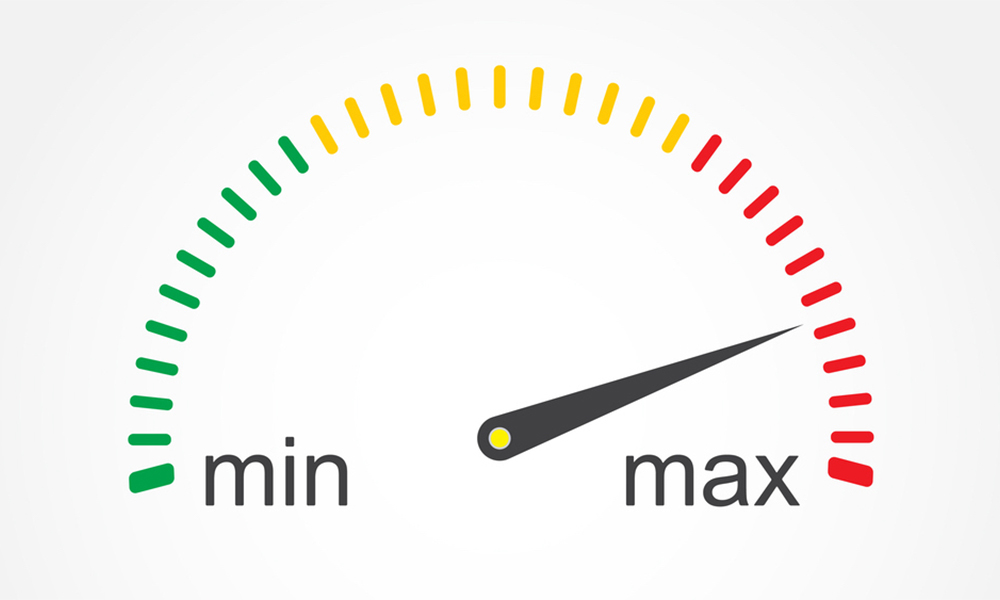We are a couple of weeks into 2018 and I’m guessing that many of you have crafted your resolutions for the year. Unsurprisingly, eating healthy usually ranks as one of the most common resolutions that people make. It is obvious to most of us that what we eat plays a crucial role in our physical health, mental well-being, and energy levels. This means that eating right can actually make us more productive.
A study conducted a few years ago solidified this link, concluding that those with unhealthy diets are 66 percent more likely to experience loss in productivity.
Yet, somehow, food habits get almost completely overlooked in discussions about how to be more productive at work. This is a huge lost opportunity: all the smart tools and sophisticated methodologies in the world can only take you so far if your basic foundation – what, when, and how you eat – is weak.
Just a few thoughtful shifts in your food habits can go a long way in helping you do more – and do it better.
So, this week, my message focuses on how food affects your productivity, and simple changes you can make in your eating habits to boost your energy and brainpower.
To better understand the impact of your food choices, it’s important to know a little bit about glucose, which is the body’s fuel. To stay awake and alert, you need about 25 grams of glucose circulating in your body at any given time. When this level dips, you begin to feel tired, groggy, and unfocused – these are signs that your body is demanding food. Practically everything you eat is ultimately broken down into glucose, but the way in which different foods release this fuel varies dramatically. Certain foods give your body a sharp spike of glucose-driven energy, followed by a long slump – these are called high-glycaemic foods. Others work more slowly, providing sustained energy and boosting productivity – also known as low-glycaemic foods.
With that in mind, here areten practical food habits to keep you at the top of your productivity game throughout the day:
1. Plan ahead
When you’re already starving, you’re prone to making bad choices – fried, sugary, and calorie-laden foods appear very tempting through the haze of hunger. That’s why it’s important to decide what you’re going to eat before your stomach starts to growl. If you’re eating at the cafeteria, head there as soon as you feel the first twinge of hunger. If you’re ordering in lunch, go through the menu and choose your meal right after a mid-morning bite. If you plan to go out, pre-pick a restaurant that offers healthy options instead of settling for junk food at the last minute.
2. Curb your coffee intake
Yes, caffeine in moderation can give you some much-needed energy, but the keyword here is “moderation”. Too many of us try to power through the long day by drinking endless espressos and lattes. In reality, coffee offers only a temporary buoyancy, which is rapidly followed by a crash – that’s when you experience irritability, headaches, fatigue. Limit yourself to a morning cup and try green tea to beat those afternoon yawns. Green tea has smaller amounts of caffeine, offering sustained energy over a longer period of time.
3. Graze through the day
“Grazing” is a habit recommended by many nutritionists – it means to eat multiple times through the day, not just at standard mealtimes. The amount of glucose in your body begins to dip a few hours after you eat, so aim for a snack every 2-3 hours between meals. This regulates your blood glucose levels, helping you get off the manic energy rollercoaster. Don’t ignore your hunger pangs and “save” your appetite for lunch or dinner – not only does this dull your cognitive processes, it also makes you more likely to overeat later. Along with smart snacking, lighter main meals will keep you energised for longer and hold sluggishness at bay. (In fact, simply using a smaller plate can have a big impact. Take a look at the small plate movement, an interesting approach to portion control.)
4. Keep healthy options within reach
When it comes to grazing, not all foods are created equal. Don’t reach for chocolate chip cookies or fried chips – these high-glycaemic items are full of empty calories that will only give you a brief burst of energy. Instead, make it a point to stock up healthy snacks at the workplace. This requires less effort than you might imagine: think carrot sticks, sprouts, nuts, fresh fruit, yogurt with a dash of honey, low-sugar energy bars, etc. In fact, with the growing health food revolution, even your neighbourhood grocery store is sure to offer some good options. Most importantly, make sure your healthy snacks are within view – you’re more likely to reach for them if they’re easily visible and accessible.
5. Fuel up for key discussions
Have you heard the word “hangry”? Some people are more prone to turning grumpy when they’re hungry; as their blood glucose levels fall, they become irritable and snappish. This can have pretty serious implications at the workplace. For instance, research has found that hungry judges give harsher sentences. If you have a tendency to get “hangry”, make sure to have a quick snack before an important conversation or meeting, in order to avoid making bad decisions or snapping needlessly at your colleagues. Trust me, they’ll definitely appreciate it.
6. Ace breakfast
Don’t underestimate the power of breakfast – it can truly transform the first half of your day. A good breakfast ritual isn’t rocket science: even if you don’t have the time or motivation to get creative in the kitchen, it’s easy enough to create a power-packed morning meal. You can opt for low-glycaemic, ready-to-eat foods like oatmeal, whole grain cereal, and bananas to ensure a steady supply of energy all morning. Other good breakfast options include eggs, yogurt, nuts, fruit, and fruit/vegetable juice (with as little sugar as possible).
7. Choose fruits and veggies
In 2015, a paper in the British Journal of Health Psychology revealed a fascinating finding: people who eat more fruits and vegetables through the day tend to be happier, more creative, and more engaged. Think about that for a moment: a simple thing like what’s on your plate has the power to elevate your mood and spark your imagination. It’s certainly worth including more of these foods in your diet to enjoy the benefits.
8. Eat mindfully
Try not to gobble down your lunch at the desk while going through emails or working on a presentation. Instead, treat mealtimes as mini-breaks, opportunities for renewal. Disconnect from work, and focus on eating slowly and enjoying the food. Take the time to chat with your colleagues, listen to music, or simply relax.
9. Get enough water
Dehydration is the brain’s enemy: it causes headaches, makes it difficult to focus, and impairs your memory. One of the easiest things you can do to raise your productivity is get enough water. Each person’s hydration requirements are different but the thumb rule is 6-8 glasses a day (i.e. 1.5-2 litres). Keep a filled water bottle on your desk and sip through the day. While pure water is best, a couple of herbal teas or juices can also help keep you hydrated and sharp.
10. Skip the nightcap
Are you in the habit of having a drink before bed in the belief that it helps you sleep better? Bad news – you may actually be worsening your overall sleep quality. Alcohol might help you drop off more quickly but it works against you later, causing interrupted and restless sleep. The result: you wake up feeling tired. So, do yourself a favour and limit drinking alcohol on week nights.
As always, I look forward to your perspectives.








Comments